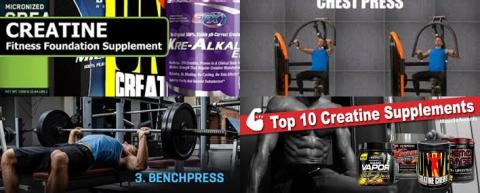Creatinesupplementen verbetert de krachtprestatie geleverd door de bovenste ledematen

Onderzoeksvraag:
Verbetert het slikken van creatine de krachtprestatie, welke geleverd wordt door de bovenste ledematen?
Studieopzet:
Dit overzichtsartikel bevatte 53 RCT’s met in totaal 563 mensen in de creatinegroep en 575 mensen in de controlegroep.
Resultaten en conclusies:
De onderzoekers vonden dat het slikken van creatine de effectiviteit van de bench press (een fitness oefening) deed toenemen [ES = 0.265, 95% BI = 0.132-0.398, p 0.001].
De onderzoekers vonden dat het slikken van creatine de effectiviteit van de chest press (een fitness oefening) deed toenemen [ES = 0.677, 95 % BI = 0.149-1.206, p = 0.012].
De onderzoekers concludeerden dat het slikken van creatine de krachtprestatie welke geleverd wordt door de bovenste ledematen bij sportoefeningen korter dan 3 minuten verbeterde. Deze verbeterde krachtprestatie was onafhanelijk van de bevolkingsgroepen, sportprotocol en de duur en dosis van de creatinesuppletie.
Oorspronkelijke titel:
Creatine Supplementation and Upper Limb Strength Performance: A Systematic Review and Meta-Analysis by Lanhers C, Pereira B, […], Dutheil F.
Link:
http://www.ncbi.nlm.nih.gov/pubmed/27328852
Extra informatie van El Mondo:
Lees hier meer over creatine, sportvoeding en krachttraining.